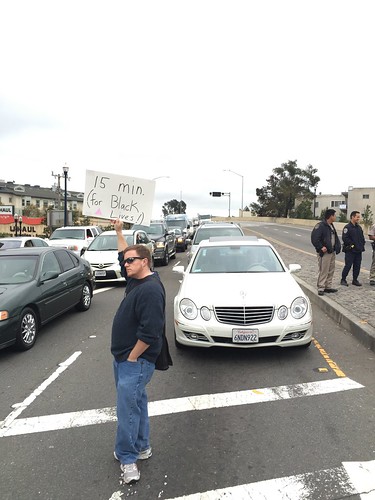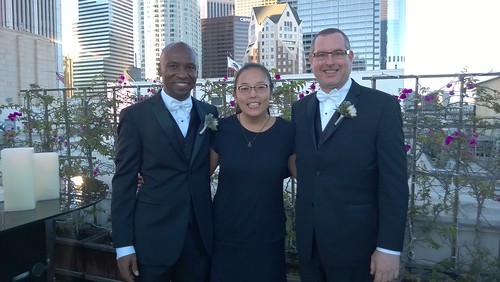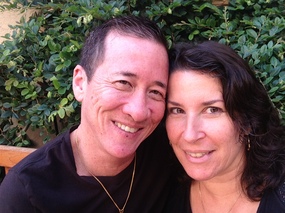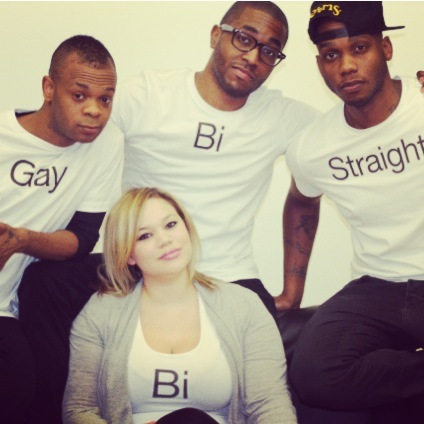Regionalni LGBT-aktivizam i suvremena ljevica // Dota, Dimitrijević, Jovanović, Kuhar || 12.5.2013.
لقد أنشأت هذا الفيديو باستخدام محرر فيديو YouTube (www.youtube.com/editor)
www.youtube.com/watch?v=wdFrwIxduyc&feature=youtube_gdata
Feet (2)

WATCH: Eminem Come Out in Interview
WATCH: Eminem Come Out in Interview
We’re not sure whether to laugh or roll our eyes.
Neal Broverman
www.advocate.com/arts-entertainment/film/2014/12/25/watch-eminem-come-out-interview
Bisexual: The New 'It' Word
It was a couple of months ago that someone I knew came to me about a new show looking to break barriers and break ground on a subject not often discussed or for that matter even talked about. Here’s the thing if bisexuality was being discussed it wasn’t happening in some of the circles or with the people I spent my time with. The show is a YouTube web series called Bi: The Web Series and it was created by David J. Cork. Cork, is an actor based in New York City with a lot of promise and possibility. His creation in Bi is perhaps the closest you will get to understand him. Bi: The Web Series is looking to do for the Bisexual community what pioneers like Janet Mock, Laverne Cox, and so many before them are doing for the Trans community. The world knows a lot more about the LGBTQ community than it did many years ago but now both Trans and Bisexuals are letting the world now more about what it’s like to live in this world different from what society considers “normal.”
Bi: The Web Series is in its first season and consist of eight episodes that in my opinion get better and better with each episode. The show follows, Alex (the bisexual) and his three best friends. A woman, (Camille) who is also bisexual, there’s two men, one straight (Damien) and another gay (Kai) and together they navigate through dating, living, and surviving in New York City. I wanted to know more about the series so I sat down with creator David J. Cork and the series director for every episode, Ashton Pina. The two of them talked me about what it was like making the series and what they hope that people would learn from it.
KM: How did Bi: The Web Series come to be?
DJC: There was a time in my life when I was dating but a girl and guy and I was telling my mom about the situation and she said that it would make a great TV show. So I started writing things down and before I knew it I had a television series.
KM: How did developing the character Alex help you in your personal life since it’s based on you?
DJC: Writing the character Alex has helped me become more comfortable with myself. I’m a more open person about my sexuality. With the show coming out it was my coming out as well, before I was really quiet about my sexuality. If you knew, you knew and now my family is starting to ask questions about it.
KM: Speaking of people asking questions, bisexuality is and has been extremely taboo. The show not only touches heavily on bisexual relationships but other forms of love also. What do you hope people will take away from this show? Aston I’m interested in your thoughts also.
AP: It’s my hope that when people watch our show that they leave or finish watching episodes and say it’s important that everyone be accepted no matter whom they love.
DJC: For me the show premiered during Bisexual Awareness Week and during that time I had people say that the show offered a fresh new perspective of a group of people vastly underrepresented in the media and entertainment.
AP: Yeah, I agree, there aren’t a lot a bisexual characters on television and I think in order for people to understand acceptance those images need to be out there.
In my talk with David and Ashton I gathered that they are looking to create programs that are not only entertaining but will also educate people on some of the difference that make up or world. The two of them decided to create a production company catered to that. They call the production company BiUs TV and they pride themselves on being able to present content for all colors. As for Bi: The Web Series the characters grow in each episode and the story transforms into something more and more complex. I recommend that if you want to get to know what other kinds of people exist in the world you take a look at the web series but be prepared for some stimulating scenes. The show really pushes the envelope with its subject matter but it also leaves you understanding what the characters are going and wanting more of it. You can check the web series on their YouTube channel BIUS TV.
Comment: Why we should reflect on the state of LGBT persecution this Christmas
Comment: Why we should reflect on the state of LGBT persecution this Christmas
Comment: Why we should reflect on the state of LGBT persecution this Christmas.
www.youtube.com/watch?v=zdEfscsTfEc&feature=youtube_gdata
queers come out for Black Lives Matter #BlackLivesMatter #lgbt #SanFrancisco #thecastro #ferguson #policebrutality #police

Florida Man Gets 30 Years in Prison for Murdering Trans Woman
Florida Man Gets 30 Years in Prison for Murdering Trans Woman
A 23-year-old Florida man has been sentenced for the murder of Ashley Sinclair (pictured), over a year after the transgender woman’s murder.
Jorge Rodriguez-Jimenez
www.advocate.com/florida/2014/12/23/florida-man-gets-30-years-prison-murdering-trans-woman
[Khảo sát LGBT] Ý kiến của bạn Công Nguyễn về cộng đồng LGBT – Official
[Khảo sát LGBT] Ý kiến của bạn Công Nguyễn về cộng đồng LGBT – Official
2014. Contact us at [email protected] or tel (84)-122-714-0270 for more information. © 2014. Liên hệ với chúng tôi tại [email protected] hoặc điện thoại (84)- 122-714-0270…
www.youtube.com/watch?v=eYc8_hNlDe8&feature=youtube_gdata
Downtown Los Angeles: LGBTQ wedding officiant

The Secret to Staying Together
The Secret to Staying Together

December 31, 1994, was the last night I spent alone. I wasn’t actually physically alone that night. I was with my live-in ex-girlfriend with whom I’d happily split several months before and a mutual friend of ours that we both had a crush on. Our crush was a young butch who hadn’t yet come into her own and was still struggling to get past the abusive echoes of her childhood. We were all damaged in some way and looking for something that would make us feel whole. Maybe we thought our awkward triangle would bring us some comfort that night. At least none of us would be alone that New Year’s Eve.
We arrived at a party, already annoyed with each other. I split from them and started mingling with other friends, finding my groove in the muted light of the apartment with a glass of gin in my hand. I felt more at ease socializing with strangers and finding my way through the crowded room than with my ex and our crush. Whenever I looked at them they looked miserable, taking swigs from their beer bottles and side-eyeing me. Finally, they approached me and insisted that we leave and go to a bar a few blocks away. Begrudgingly I left the party and followed them outside and up Market Street toward the second-floor bar in San Francisco’s Castro neighborhood. As we approached we spotted the long line to get in. It was already 11:40, and it was unlikely we would get in before midnight. I felt a few sprinkles hit my face.
I stood in the rain, steam rising from my already-fuming body. I was tired of not feeling seen. By the stroke of midnight I had a realization that I was going to have to change my life. I was going to take a risk.
A few weeks prior I had presented my ex with a dare to place a personal ad in the San Francisco Bay Times. As a show of support, and on a lark, I placed one too – with no expectation or desire to find a new lover. My ad read, “I LIKE FUN. Irreverent voluptuous grad student seeks brainy, brawny girls to frolic with. Must like opening doors, bitchy banter, and wicked laughter. I won’t bite unless you ask me to.” I immediately received three calls in response. One I dismissed out of hand as I listened to the recorded message, “Like I says, I think you might like me.” I went on a date with one woman who regaled me with stories about snuggling with her pet rat. There was one other message. The voice was sexy and confident, and the message both titillated and offended me. I could tell this person was bold, and wanted to rock my world. I didn’t call back.
But as I stood in the rain that New Year’s Eve, I made a dare with myself, and when I woke on January 1, 1995, I took a few moments to collect myself. I dialed the phone number. When the person answered the phone, the voice captured me right away and we sunk down into an hour-long conversation about butch/femme, Stone Butch Blues, trans bodies, femme bodies, what we wanted and how. We spent the next two weeks talking on the phone, challenging each other with ideas and -isms and mellifluous words. We often disagreed and spent hours hashing things out and coming back together. By the time we met, we were already in love.
That was 20 years ago on January 1, 2015, and we are still together, now with three children. We like to remind each other that we are living the dream at the end of a long day when we are exhausted by the effort of being grown adults with kids and a mortgage and the cost of living in the Bay Area. But my partner still rocks my world after all these years, and I thank my lucky stars for that shitty New Year’s Eve so many years ago.
Sometimes we meet younger couples that are impressed by the longevity of our relationship and ask us, somewhat jokingly but with real earnestness in their eyes what the secret is to staying together so long. My response is always the same. You always have to listen to the other person, even when what they are saying makes no sense at all to you. You have to squint your eyes, try to pretend you are them, and take to heart that what they are saying is real and matters to them. Something magical happens when you do that. The other person softens because they have been heard. That is when the real conversation begins. And if you can do that for each other, you can find your real feelings and know that your vulnerability is safe.
Perhaps we are also lucky that both our parents have had very long relationships. Willy’s parents have been happily together for 62 years. My parents were unhappily together for 50 years until my father’s death. Despite their rocky start through an ill-advised arranged marriage and the challenges of being working-class immigrants, they stayed together. After my father had a stroke, he told my mother he wanted to die at home. My mother quit her waitressing job and spent the next 18 years caring for him until he died in his bed on his86th birthday on January 2, 2009. I believe that her sacrifice to give him the end he needed allowed them to finally soften after 50 years of fighting. He finally felt heard.
The secret to staying together is staying together, but more than that it is caring enough to see the world through someone else’s eyes and saying, I see you. Not just the bluster or hubris, but the soft core inside that is oftentimes hidden from the harshness of the world. I see you.
Happy Anniversary, Willy Wilkinson.

